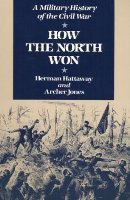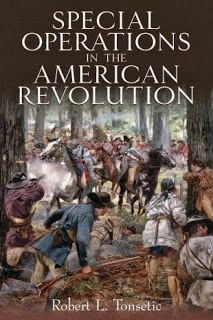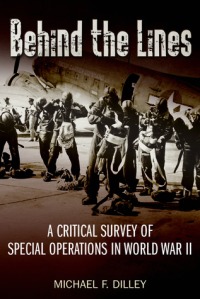Zenith Press has something fun this Sunday (May 3). Sunday is FREE COMIC BOOK DAY (#FCBD2015). Zenith Press will be giving away copies of our historically-accurate graphic history books by Wayne Vansant.
10 lucky winners will get a free copy of each of Vansant's 6 books and 1 lucky winner will have their face drawn into the Vansant book cover of their choice.
The winner could choose to be a soldier on the Normandy battlefield or the Red Baron flying through the sky or maybe Robert E. Lee on Gettysburg grounds!. After Wayne Vansant personalizes the cover with the winners face, we will print it in large format and frame it for the winner.
The direct link to the rafflecopter giveaway on Zenith Press' Facebook page is here (it won't work until Sunday):
http://gvwy.io/fmzg29
 |
9780760343920
Pub Date: 9/15/12
$19.99
104 Pages
|
Normandy
A Graphic History of D-Day,
The Allied Invasion of Hitler's Fortress Europe by Wayne Vansant
Summary
Normandy depicts the planning and execution of Operation Overlord in 96 full color pages. The initial paratrooper assault is shown, as well as the storming of the five D-Day beaches: Utah, Omaha, Gold, Juno, and Sword. But the story does not end there. Once the Allies got ashore, they had to stay ashore. The Germans made every effort to push them back into the sea. This book depicts tsuch key events in the Allied liberation of Europe as:
1. Construction of the Mulberry Harbors, two giant artificial harbors built in England and floated across the English Channel so that troops, vehicles, and supplies could be offloaded across the invasion beaches.
2. The Capture of Cherbourg, the nearest French port, against a labyrinth of Gernan pillboxes.
3. The American fight through the heavy bocage (hedgerow country) to take the vital town of Saint Lô.
4. The British Canadian struggle for the city of Caen against the “Hitler Youth Division,” made up of 23,000 seventeen and eighteen-year-old Nazi fanatics.
5. The breakout of General Patton’s Third Army and the desperate US 30th Division’s defense o...
Contributor Bio:
Writer and artist Wayne Vansant was the primary artist for Marvel's The 'Nam for more than five years. Since then, he has written and illustrated many historically accurate graphic histories, such as The Hammer and the Anvil; The Vietnam War: A Graphic History; Normandy: A Graphic History of D-Day, The Allied Invasion of Hitler's Fortress Europe (Zenith Press, 2012); Gettysburg: The Graphic History of America's Most Famous Battle and the Turning Point of the Civil War (Zenith Press, 2013); Grant vs. Lee: The Graphic History of the Civil War's Greatest Rivals During the Last Year of the War (Zenith Press, 2013); Bombing Nazi Germany: The Graphic History of the Allied Air Campaign That Defeated Hitler in World War II (Zenith Press, 2013); and The Red Baron:The Graphic History of Richthofen's Flying Circus and the Air War in WWI (Zenith Press, 2014). He is currently working on The Battle of the Bulge: A Graphic History of Allied Victory in the Ardennes,
 |
9780760344064
Pub Date: 4/15/13
$19.99
96 Pages
|
Gettysburg
The Graphic History of America's Most Famous Battle and the Turning Point of The Civil War by Wayne Vansant
Summary
The Battle of Gettysburg is a landmark event in United States history. Widely recognized as the Civil War’s turning point, it accounted for the most casualties of any battle during the war and spelled the beginning of the end for the Confederacy.
In this powerful graphic history, Wayne Vansant describes the history leading up to the Battle of Gettysburg, as well all of the major military events on July 1st, 2nd, and 3rd, including the famous fight for Little Round Top on the second day and the death march known as Pickett’s Charge on the third and final day. He paints portraits of each army’s leaders, such as Robert E. Lee, James Longstreet, George Meade, and the then little known Joshua Chamberlain.
Vansant concludes a few months later at the dedication of the Soldier’s National Cemetery in November, 1863, when Abraham Lincoln delivered one of the most iconic speeches of all time, the Gettysburg Address. Gettysburg delivers one of the hallmark events of American history in an exciting and innovative format.
"Wayne Vansant has authored a graphic account of the Battle of Gettysburg wi...
Contributor Bio:
Writer and artist Wayne Vansant was the primary artist for Marvel's The 'Nam for more than five years. Since then, he has written and illustrated many historically accurate graphic histories, such as The Hammer and the Anvil; The Vietnam War: A Graphic History; Normandy: A Graphic History of D-Day, The Allied Invasion of Hitler's Fortress Europe (Zenith Press, 2012); Gettysburg: The Graphic History of America's Most Famous Battle and the Turning Point of the Civil War (Zenith Press, 2013); Grant vs. Lee: The Graphic History of the Civil War's Greatest Rivals During the Last Year of the War (Zenith Press, 2013); Bombing Nazi Germany: The Graphic History of the Allied Air Campaign That Defeated Hitler in World War II (Zenith Press, 2013); and The Red Baron:The Graphic History of Richthofen's Flying Circus and the Air War in WWI (Zenith Press, 2014). He is currently working on The Battle of the Bulge: A Graphic History of Allied Victory in the Ardennes,
 |
9780760345306
Pub Date: 9/30/13
$19.99
104 Pages
|
Bombing Nazi Germany
The Graphic History of the Allied Air Campaign That Defeated Hitler in World War II by Wayne Vansant
In Bombing Nazi Germany, renowned graphic novel author and artist Wayne Vansant profiles the dramatic joint American-British Allied air war against Nazi Germany throughout Europe during World War II. Meticulously researched, illustrated, and written with the same unmatched quality of Vansant's
Normandy and Gettysburg (also from Zenith Press), Bombing Nazi Germany tells the story of the first and second generations of airmen, soldiers, and politicians from both sides who sought to bomb the enemy into submission.
Vansant traces the development of the wildly controversial Strategic Bombing doctrine in the 1920s and 1930s, the early stages of WWII and the dominance of the German Luftwaffe, and the eventual 1942 involvement of the United States' 8th
Air Force and its vast fleet of B17 and B24 bombers. Beautifully detailed with maps, schematics, and charts, Bombing Nazi Germany also explores how industry and science aided the Allied air forces in these violent fights, as both the Americans and British made crucial advancements in air detection and evasion methods.
Contributor Bio:
Writer and artist Wayne Vansant was the primary artist for Marvel's The 'Nam for more than five years. Since then, he has written and illustrated many historically accurate graphic histories, such as The Hammer and the Anvil; The Vietnam War: A Graphic History; Normandy: A Graphic History of D-Day, The Allied Invasion of Hitler's Fortress Europe (Zenith Press, 2012); Gettysburg: The Graphic History of America's Most Famous Battle and the Turning Point of the Civil War (Zenith Press, 2013); Grant vs. Lee: The Graphic History of the Civil War's Greatest Rivals During the Last Year of the War (Zenith Press, 2013); Bombing Nazi Germany: The Graphic History of the Allied Air Campaign That Defeated Hitler in World War II (Zenith Press, 2013); and The Red Baron:The Graphic History of Richthofen's Flying Circus and the Air War in WWI (Zenith Press, 2014). He is currently working on The Battle of the Bulge: A Graphic History of Allied Victory in the Ardennes,
 |
9780760345313
Pub Date: 9/30/13
$19.99
104 Pages
|
Grant vs. Lee
The Graphic History of the Civil War's Greatest Rivals During the Last Year of the War by Wayne Vansant
Summary
Grant vs. Lee tells the dramatic story of the final year of the Civil War in Virginia a bloody and unyielding fight for both sides through the eyes of the two greatest Civil War generals: the North's Ulysses S. Grant and the South's Robert E. Lee.
The long and violent campaigns that took place from 1864 - 1865 (the Overland Campaign, Petersburg Campaign, and Appomattox Campaign) represent the beginning of modern warfare. By this point of the war, both sides employed seasoned and hardened soldiers who looked past the Victorian sensibilities of the gentleman soldier and understood that there would be no falling back.
By the end of 1864, both sides built trenches and mounted attacks to break each other's lines. There was a stalemate that winter. Grant's forces had superior numbers and supplies and by March 1865 they pushed Lee's army out of the trenches at Petersburg and took Richmond, the Confederate capital. Lee's dwindling forces retreated west, looking for food and other Southern forces to help continue the fight. After a bitter final battle at Sailor's Creek, Lee's army was surro...
Writer and artist Wayne Vansant was the primary artist for Marvel's The 'Nam for more than five years. Since
Contributor Bio:
Writer and artist Wayne Vansant was the primary artist for Marvel's The 'Nam for more than five years. Since then, he has written and illustrated many historically accurate graphic histories, such as The Hammer and the Anvil; The Vietnam War: A Graphic History; Normandy: A Graphic History of D-Day, The Allied Invasion of Hitler's Fortress Europe (Zenith Press, 2012); Gettysburg: The Graphic History of America's Most Famous Battle and the Turning Point of the Civil War (Zenith Press, 2013); Grant vs. Lee: The Graphic History of the Civil War's Greatest Rivals During the Last Year of the War (Zenith Press, 2013); Bombing Nazi Germany: The Graphic History of the Allied Air Campaign That Defeated Hitler in World War II (Zenith Press, 2013); and The Red Baron:The Graphic History of Richthofen's Flying Circus and the Air War in WWI (Zenith Press, 2014). He is currently working on The Battle of the Bulge: A Graphic History of Allied Victory in the Ardennes,
 |
9780760346020
Pub Date: 6/1/14
$19.99
104 Pages
310 illustrations & 3 maps
|
The Red Baron
The Graphic History of Richthofen's Flying Circus and the Air War in WWI by Wayne Vansant
Summary
In The Red Baron, graphic artist and author Wayne Vansant illustrates the incredible story of Manfred von Richthofen, whose unparalleled piloting prowess as a member of the Imperial German Army Air Service made him a World War I celebrity, both in the air and on the ground. In his signature style, enjoyed by readers of Normandy and Bombing Nazi Germany, Vansant beautifully depicts the fearsome intelligence and midflight awareness that would earn Richthofen eighty documented air combat victories over the Western Front in the halcyon days of military aviation.
From his beginnings as cavalry member and a pilot in training to the years he spent commanding Jasta 11 from the cockpit of his fabled red plane, to his eventual leadership of the ultramobile Jagdgeschwader 1 (aptly nicknamed "Richtofen's Flying Circus" by nervous foes because of the group's colorful
airplanes and mobile airfields), The Red Baron brings the story of this legendary figure to life. Richthofen died young under controversial circumstances, but the Red Baron's astonishing skill and tactical acumen lived on far long ...
Contributor Bio:
Writer and artist Wayne Vansant was the primary artist for Marvel's The 'Nam for more than five years. Since then, he has written and illustrated many historically accurate graphic histories, such as The Hammer and the Anvil; The Vietnam War: A Graphic History; Normandy: A Graphic History of D-Day, The Allied Invasion of Hitler's Fortress Europe (Zenith Press, 2012); Gettysburg: The Graphic History of America's Most Famous Battle and the Turning Point of the Civil War (Zenith Press, 2013); Grant vs. Lee: The Graphic History of the Civil War's Greatest Rivals During the Last Year of the War (Zenith Press, 2013); Bombing Nazi Germany: The Graphic History of the Allied Air Campaign That Defeated Hitler in World War II (Zenith Press, 2013); and The Red Baron:The Graphic History of Richthofen's Flying Circus and the Air War in WWI (Zenith Press, 2014). He is currently working on The Battle of the Bulge: A Graphic History of Allied Victory in the Ardennes,
 |
9780760346228
Pub Date: 10/1/14
$19.99
104 Pages
350 color illustrations
|
The Battle of the Bulge
A Graphic History of Allied Victory in the Ardennes, 1944 - 1945 by Wayne Vansant
Summary
Fought in the winter of 1944 - 1945, the coldest season in over 100 years, the Battle of the Bulge still ranks as the single largest battle ever fought by the United States Army. Thirty-one
American divisions fully one-third of the U.S. Army raised during World War II saw action in this battle. This battle was truly a test: could this conscript army from a pacifistic democracy defeat the best remaining men and machines that Germany's totalitarian government could produce?
In Battle of the Bulge, author and artist Wayne Vansant brings readers into the frozen foxholes, haunting forests, and devastated villages of the Ardennes during that freezing cold
winter. With meticulous historical accuracy and hand drawn
visuals that can tell a story in ways words alone cannot, Vansant recounts the Bulge with insightful detail, replaying the thrusts and volleys of both the combined Allied and German forces during the tumultuous battle. This is a story of panic, fear, and physical misery; a story of how a generation of draftees, National Guardsmen, and a small core of regular officers and NCOs fa...
Contributor Bio:
Writer and artist Wayne Vansant was the primary artist for Marvel's The 'Nam for more than five years. Since then, he has written and illustrated many historically accurate graphic histories, such as The Hammer and the Anvil; The Vietnam War: A Graphic History; Normandy: A Graphic History of D-Day, The Allied Invasion of Hitler's Fortress Europe (Zenith Press, 2012); Gettysburg: The Graphic History of America's Most Famous Battle and the Turning Point of the Civil War (Zenith Press, 2013); Grant vs. Lee: The Graphic History of the Civil War's Greatest Rivals During the Last Year of the War (Zenith Press, 2013); Bombing Nazi Germany: The Graphic History of the Allied Air Campaign That Defeated Hitler in World War II (Zenith Press, 2013); and The Red Baron:The Graphic History of Richthofen's Flying Circus and the Air War in WWI (Zenith Press, 2014). He is currently working on The Battle of the Bulge: A Graphic History of Allied Victory in the Ardennes,
 |
9780760346648
Pub Date: 11/3/14
$19.99
96 Pages
b/w illustrations
|
Area 51
The Graphic History of America's Most Secret Military Installation by Dwight Zimmerman, Greg Scott
Summary
The actual history of the United States' worst kept military secret revealed in graphic format.Though nearly everyone has heard of it, almost no one has known anything about it . . . until now. Located in the remote Nevada desert near the dry bed of Groom Lake, Area 51 is the most famous military installation in the world that doesn't "officially" exist. In Area 51, author Dwight Zimmerman and artist Greg Scott unravel the
real history minus the aliens and scifi movie plots revealing
in detail how for more than 60 years, the CIA, the U.S. Air Force, and aerospace company Lockheed Martin have all used Area 51 as a staging ground for test flights of experimental or highly classified aircrafts.
Scott illustrates the Archangel12 as well as following aircrafts, such as the U2, the SR71 Blackbird, and the F117 Nighthawk stealth fighter, while author Zimmerman tells the history of how they sprang from the research and development conducted at Area 51. This
first of its kind graphic history strips away the fantastical aspects of this mysterious location and establishes the actual, s...
Contributor Bio:
Dwight Jon Zimmerman is a bestselling and award-winning author, radio show host, and producer and the president of the Military Writers Society of America. Zimmerman has authored the text for several graphic novels, including the acclaimed The Hammer and the Anvil, a dual biography of abolitionist Frederick Douglass and President Abraham Lincoln. His other titles include The Vietnam War: A Graphic History and Uncommon Valor: The Medal of Honor and the Six Warriors Who Earned It in Afghanistan and Iraq. He is also the co-author, with Bill O'Reilly, of the New York Times number one bestseller Lincoln's Last Days.
Greg Scott is a comicbook artist who has done stints at both Marvel and DC Comics, working on such series as Gotham Central and Case Files: Sam and Twitch. He's also a film fanatic and he typically watches two movies a day. The aesthetic of film informs his work, more so than traditional drawing. Get sneak peeks at his blog: gregscottart.blogspot.com.




 Jimmie Aaron Kepler is a novelist, poet, book reviewer, and award-winning short story writer. His work has appeared in over twenty venues, including Bewildering Stories and Beyond Imagination. When not writing each morning at his favorite coffee house, he supports his writing, reading, and book reviewing habit working as an IT application support analyst. He is a former Captain in the US Army. His blog Kepler's Book Reviews was named a 100 best blogs for history buffs in 2010. You can visit him at
Jimmie Aaron Kepler is a novelist, poet, book reviewer, and award-winning short story writer. His work has appeared in over twenty venues, including Bewildering Stories and Beyond Imagination. When not writing each morning at his favorite coffee house, he supports his writing, reading, and book reviewing habit working as an IT application support analyst. He is a former Captain in the US Army. His blog Kepler's Book Reviews was named a 100 best blogs for history buffs in 2010. You can visit him at 


 Jimmie Aaron Kepler is a novelist, poet, book reviewer, and award-winning short story writer. His work has appeared in over twenty venues, including Bewildering Stories and Beyond Imagination. When not writing each morning at his favorite coffee house, he supports his writing, reading, and book reviewing habit working as an IT application support analyst. He is a former Captain in the US Army. His blog Kepler's Book Reviews was named a 100 best blogs for history buffs. He is old enough to collect Social Security if he wants, but not yet old enough for Medicare. You can visit him at
Jimmie Aaron Kepler is a novelist, poet, book reviewer, and award-winning short story writer. His work has appeared in over twenty venues, including Bewildering Stories and Beyond Imagination. When not writing each morning at his favorite coffee house, he supports his writing, reading, and book reviewing habit working as an IT application support analyst. He is a former Captain in the US Army. His blog Kepler's Book Reviews was named a 100 best blogs for history buffs. He is old enough to collect Social Security if he wants, but not yet old enough for Medicare. You can visit him at 





















